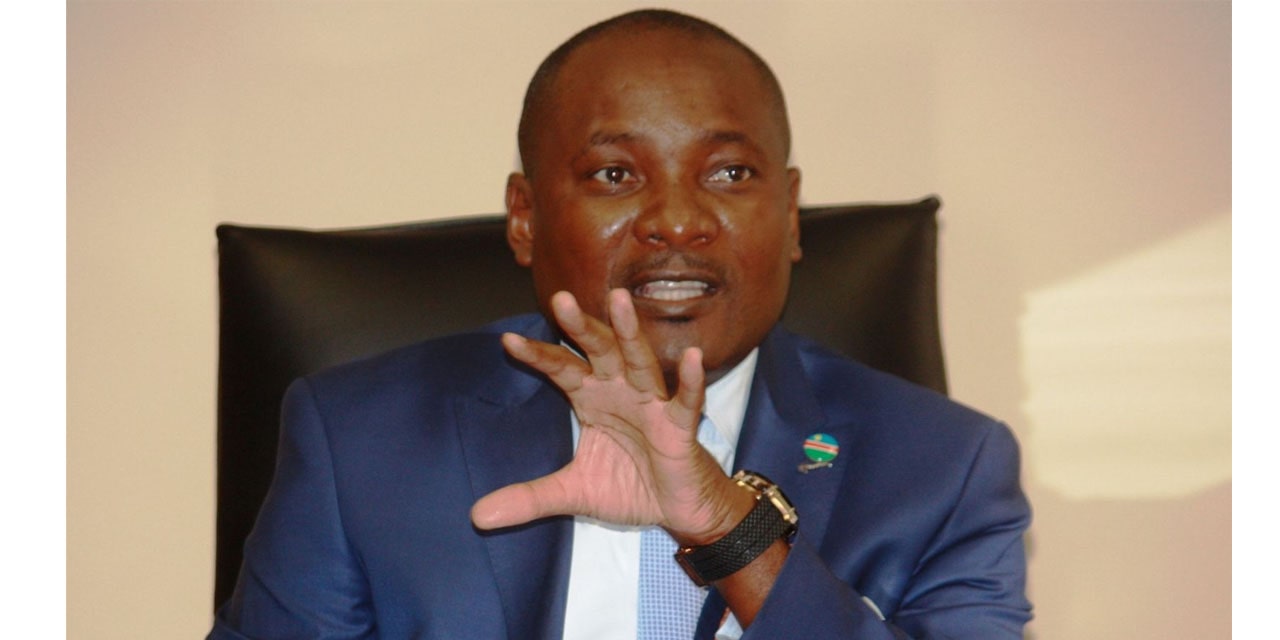Obrein Simasiku
A total of 55 rhinos have been poached since the beginning of this year, something the Minister of Environment, Forestry and Tourism (MEFT) Pohamba Shifeta, is deeply concerned about, as it is an increase from 44 that was killed and stripped of their precious horns in 2021.
These are acts that goes to test and challenge the ministry including other agencies’ efforts of combating poaching activities.
This comes at the backdrop of receiving ten 4×4 off-road vehicles, water maintenance equipment, camping equipment, wildlife monitoring equipment, predator transport crates, workshop tools, equipment for spatial monitoring and reporting and IT equipment, worth N$21.7 million from German Government through KfW development bank.
Shifeta revealed at the handover yesterday, that 36 people have been arrested for rhino related cases this year, compared to 80 in 2021. As for elephants, two have been poached so far this year compared to eight in the previous year. Meanwhile, 58 people have been arrested for elephant poaching, a reduction from 98 recorded last year.
Eight live pangolins have been seized so far this year compared to twenty-one (21) in 2021; while 24 pangolin skins have been seized this year compared to 66 skins in 2021. “48 suspects have been arrested in connection with pangolin related cases this year, compared to 129 in 2021. Therefore this support comes at a time when the country is experiencing an increase in crime against wildlife particularly rhinos and pangolins. These crimes are closely linked to the international trade of species and their products.”
“These equipment will significantly support our efforts to protect wildlife and manage our National Parks efficiently and effectively. This donation comes at a time when the country is recovering from the impact of the COVID-19 global health pandemic. The pandemic subjected our economy to unprecedented pressure, and this did not spare our Ministry,” said Shifeta.
Furthermore, Shifeta stated that, the ministry’s daily operations were severely affected during Covid, making it extremely difficult to maintain and manage activities such as water provision to game, wildlife crime prevention, inspections and law enforcement, human wildlife conflict management, infrastructure development, rural community involvement and participation in wildlife management.
In the process the minister said the tourism industry was hard hit.
The ministry has over the past years, directed its focus towards the law enforcement component of conservation in an effort to protect the country’s natural resources, mainly wildlife from illegal hunting and trade.
According to Shifeta such renewed efforts, encompassed measures of recruiting additional anti-poaching officials, deployment of vehicles and construction of patrol camps in critical areas that are severely affected by poaching. “We have trained and equipped the Rangers of the Wildlife Protection Services (WPS), provided 4×4 training courses for our MEFT and WPS staff members, and trained and equipped MEFT staff with the Spatial Monitoring and Reporting Tool, simply referred to as SMART,” he added.
In terms of reinforcing boots on the ground, Shifeta revealed that, the ministry increased its visibility through foot and aerial patrols in all hotspot areas, especially in Etosha National Park, Bwabwata National Park and tourism areas in the Kunene Region.
He therefore said, the 10 vehicles will be deployed in these hotspot areas to strengthen the efforts to protect our wildlife”
“Various approaches have been implemented to curb the onslaught of species such as rhino, elephant and pangolin that are especially sought after by poaching syndicates due to the value of their products. We want to ensure that no wild animal is illegally killed in our country, and that wildlife benefits the people of this country, both the present and future generations.”
“The support we are receiving today will continue to make a measurable, tangible difference towards augmenting current law enforcement and conservation initiatives. Let me therefore extend my appreciation to the German Government through KfW for funding and procuring these equipment to be used by the Ministry. I say thank you again and let us continue our collaboration, friendship, partnership and working together in the conservation of our natural resources for the betterment of our economy, the country and its people,” he cherished.




